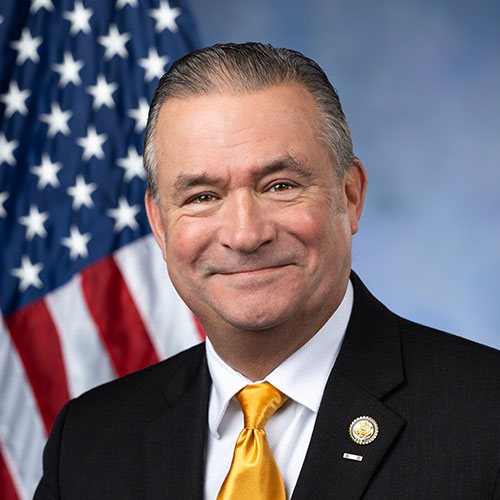Press Releases
Bacon, Coffman, Gallego, & Panetta Call for a Vote on a New Authorization for Use of Military Force
Washington, DC,
May 22, 2018
Tags:
National Defense
U.S. Representatives and combat veterans Don Bacon (R-NE), Ruben Gallego (D-AZ), Mike Coffman (R-CO), and Jimmy Panetta (D-CA), submitted a proposed bipartisan amendment to the National Defense Authorization Act (NDAA) to amend the House Joint Resolution 118, Authorization for the Use of Military Force (AUMF) Against al-Qaeda, the Taliban, and the Islamic State of Iraq and Syria. The purpose of this new AUMF is to update and clearly define the limits to a president’s ability, as the Commander-in-Chief, to use military action against al Qaeda, ISIS, and similar terrorist organizations in Syria, Iraq and Afghanistan without further congressional approval. The AUMFs, under which those operations are currently authorized, were enacted against the backdrop of the September 11, 2001 terrorist attacks and are now outdated. As introduced, the H.J. Resolution 118 version of the AUMF would be valid for a period of 5 years, unlike the Senate version, which requires only a review every four years, the House version would expire forcing a full debate and a vote on a new AUMF. H.J. Res 118 was introduced in October of 2017, but to date, the House has not held a hearing on it. By offering the resolution as an amendment to the NDAA, the four sponsoring Representatives hope to obtain a debate and a vote. If amended onto the NDAA, this provision will provide clear Congressional authorization guidelines and limits for the use of military force and repeal the two outdated AUMFs currently in the law. In launching this effort, Coffman observed that, “Congress last voted to authorize the use of military force in 2002, when ISIS didn’t even exist. The Constitution clearly gives Congress the power to authorize military action. This is why, I am calling on the House of Representatives to debate and vote on an updated authorization for the use of military force.” Coffman’s colleagues also feel strongly about the importance of this issue: Gallego commented, “Congress needs to reassert its authority and provide our servicemen and women the guidance they need to pursue ISIS, al Qaeda, and the Taliban without exposing them to mission creep and fights that we didn’t sign them up for. At a time when we face a wide range of threats from across the globe, we cannot afford to cede authority for the use of military force to President Trump or any future president. We owe this guidance and accountability to our servicemembers and the American people.” Bacon added, “Congress needs to do its job as laid out in Article One of the Constitution. This updated AUMF covers today’s threats and enemies and shows our military members that they have the full support of the Congress and the American people.” Panetta further noted, “Our military is currently operating under two outdated and outsized AUMFs. This bipartisan legislation creates an appropriately tailored AUMF to prevent the unauthorized use of military force and reasserts Congress's constitutional duty to clearly define military action against adversaries." The letter asking the Rules Committee to rule the amendment in order so it can move to the floor of the House for a debate and a vote is HERE. Possibly the most intriguing aspect of Congress’ continued reluctance to consider a new AUMF is that the Administration has asked for a vote on an AUMF, yet no action has been taken. At an October 3, 2017, House Armed Services Committee Hearing, Secretary of Defense, James Mattis, said, “And as far as the AUMF goes, my point is that we need the unity of the American government and with the Congress involved that brings the unity of the American people to this fight… I think there has got to be -- the U.S. Congress has got to embrace this as our fight. We're all in this…” The House is scheduled to vote on the NDAA later this week. |
